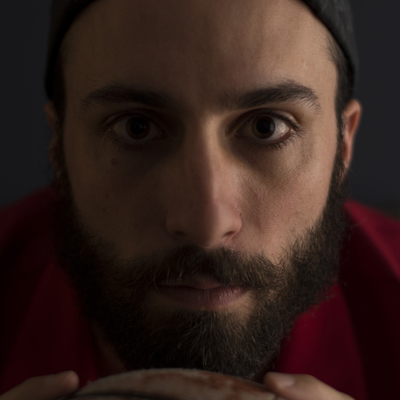In today's visual-centric world, photography is more than a hobby; it's a powerful means of communication. With the rise of digital media, the field offers boundless creativity and opportunity, making now the perfect time to embark on your professional journey. Whether you dream of capturing life's candid moments or the raw beauty of untamed nature, this guide will provide a comprehensive look into how to become a professional photographer.
Photography is a canvas for your curiosity. From the intimacy of portrait photography and the serene expanses of landscapes to the dynamic world of events—the niches are endless. Experimentation is key to discovering where your passion truly lies. Engage with multiple genres before settling into your unique style and niche.
Embarking on a career in photography requires more than a creative eye; technical proficiency forms the backbone of professional success in this dynamic field.
Knowing your gear's ins and outs is one aspect that sets professionals apart. Familiarity with your tools enhances confidence and speed, ultimately improving efficiency on the job.
The digital darkroom is where good photos become great, and learning post-processing software like Photoshop and Lightroom is also essential for professional photographers. From correcting colours to manipulating shadows, post-processing gives you a second chance at perfection.
The photographic landscape is ever-evolving, and staying updated with the latest techniques and equipment is crucial for growth.
Your portfolio is a visual autobiography of your best work. It's your ambassador to potential clients and employers. A strong portfolio is diverse, showcasing different styles and subjects, and emphasises your unique perspective and range, making it essential for any budding photographer.
Relationships drive the creative industry. Networking isn't just about finding jobs; it's about building a community, learning from peers, and finding collaboration opportunities. Social media and online platforms are invaluable for showcasing your work and connecting with others.
Running a successful photography business involves more than taking stunning photos. From legal considerations and financial management to mastering marketing strategies and client relations—these administrative tasks might seem daunting but are crucial for professional longevity.
Breaking into professional photography often begins with building a solid educational foundation. Online platforms like The Photography Institute provide budding photographers with the flexibility to learn at their own pace, often for a fraction of the cost of traditional education. Additionally, many online courses offer community support and networking opportunities, essential for career growth.
The spectrum of careers in photography is as diverse as art itself. Whether capturing the euphoria at weddings, the latest trends in fashion, the thrill in sports, or stories needing to be told in photojournalism—each path is unique and fulfilling. The industry allows for both traditional employment and entrepreneurial ventures, like starting your studio or teaching photography.
Students of the Photography Institute in Singapore have established successful photography careers including:

The Certificate in Photography is a really great online course to undertake.
I took the full 12 months to complete it, but it can easily be done quicker. Before starting the course, I only had a little experience with my DSLR, but I wanted to know more about the technical aspects of photography. Since completing the course, I now have so much more knowledge about my camera and the photographic process required to take great images.
Having a personalised online tutor was also really handy. I could ask my tutor, Steven Vote, any questions about the course, modules, or assignments, and I would get a response quickly. He also provided very valuable feedback after each assignment which I will keep on hand for future reference.
The course is structured very well, and the content is all relevant. George Seper and the Photography Institute team have done a great job putting it altogether. I would happily recommend the online course to those out there who are interested in photography and want to develop their skillset and knowledge further.
Cameron Crisafio
@criscography

I decided to complete this course when I decided to turn my hobby into a career.
Studying while also working, I have gained so much skill and knowledge. I can see the difference between my photographs from the start of the course to the images that I am now able to produce.
Your tutor works with you to ensure that you understand each step of the course and helps you when you need more guidance.
I have studied online before and have had a bad experience with my set tutors not helping and really not caring if you fail or not. That made me really wary of applying for this online course. But I am so glad that I took the leap and I was truly surprised by how much your tutors wanted to see you succeed.
I will be forever grateful for their guidance. They are truly passionate about what they do and making sure you reach your goals.
Thank You Team
Nicole Peters
nicolepetersphotography.com

I started this course with very little knowledge of photography.
I mainly shot landscape at the time. Throughout the course I gained a lot of knowledge which led me to fashion and studio photography.
I now am a professional Fashion Photographer and I'm getting paid to do what I love.
I found my Tutor very helpful and very quick to reply to my questions. Which was great when I needed an answer in hurry, as let's face it we all have careers and lives to live.
I found this to be very comforting to know my assignment were being marked and assessed by an award winning and industry professional that has been through it all.
If you are looking for a course to build your photography skill for hobby or profession, I would strongly recommend The Photography Institute. This course has opened my eyes to a much broader world of photography. Take the plunge!!
Stephen Savage
Becoming a professional photographer is a journey of endless learning and profound personal satisfaction. It's a path that demands technical skill, artistic expression, and a deep passion for telling stories through images.
Ready to turn your passion for photography into a rewarding career? Dive into the world of photography with The Photography Institute. Explore our comprehensive course online or get in touch today to take your first step towards a rewarding career in photography.